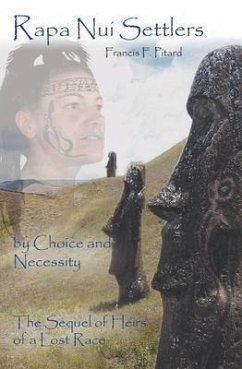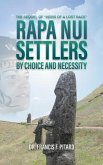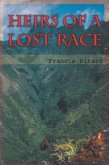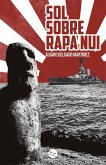The way the transportation of Moais is described in this novel may not have been the most efficient. The most efficient way, only used much later in their history, caused the destruction of many endemic palm trees. It is very likely indeed Moais were rolled on fragile palm tree logs. However, the way it is described in this novel is at least consistent with what the Rongo Rongo characters suggest. It is my belief that these mysterious characters hold valuable information about the long forgotten early ways of Rapa Nui; it makes them priceless.Then, there is the tale told by modern man saying the Rapa Nui people destroyed themselves, because of warfare, starvation, cannibalism, greed, and even stupidity. This is an attempt to hide the truth. I strongly disagree with these statements, which are gratuitously made and are blatant insults to great Polynesians. Ancient Polynesians were indeed a lot smarter than this, as studied in Heirs of a Lost Race. This book pays homage to the real Rapanuis, the original Rapanuis, a peaceful group of talented, intelligent, and caring people. Contemporaneous theories characterizing the Rapanuis as a self-destructive society that created the environmental disaster, starvation, cannibalism, and warfare resulting in its downfall is unadulterated slander! In today's society, we often scrape the bottom of the barrel to rationalize what we do today around the world. Such is the case for those who cast aspersions on the Rapanuis. Mongers of inaccurate, arrogant, and contrived pseudo-histories have done a criminal disservice to a proud people and to the rest of us who honor them for their magnificent achievements.
Dieser Download kann aus rechtlichen Gründen nur mit Rechnungsadresse in A, D ausgeliefert werden.









